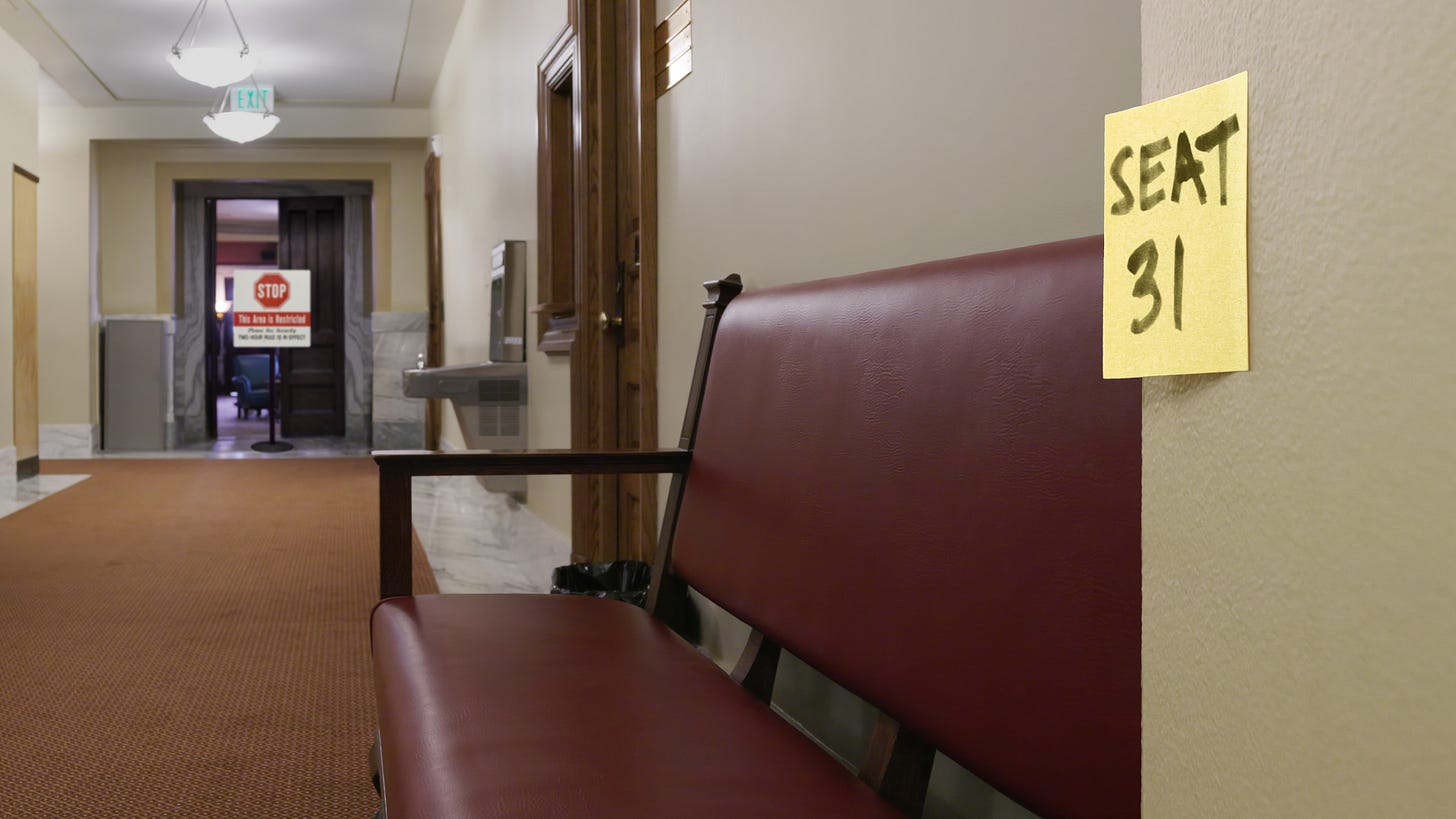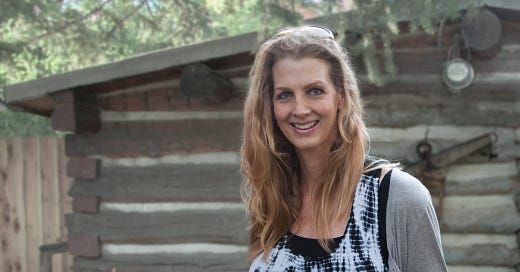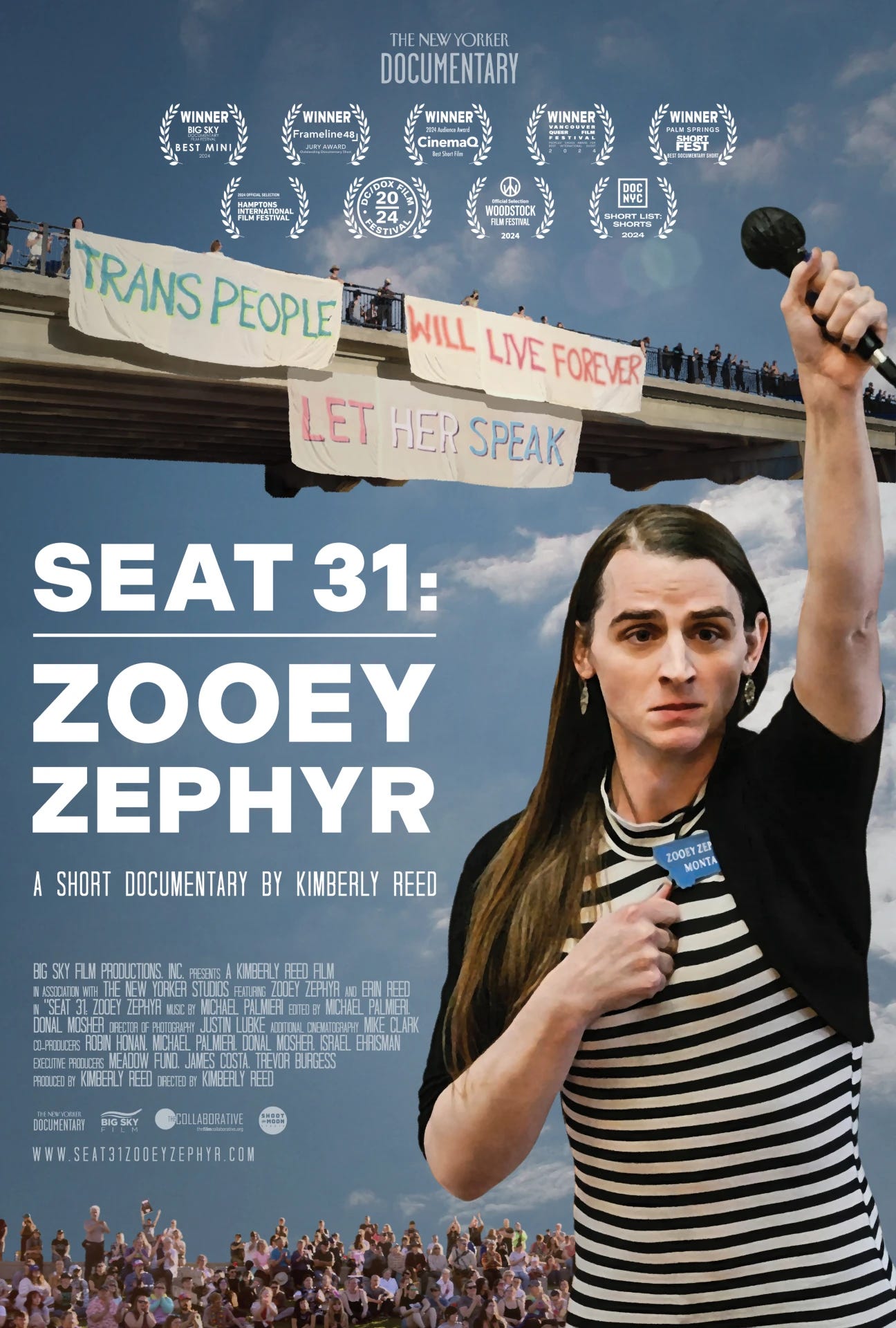Two weeks ago, I had the opportunity to interview documentary filmmaker Kimberly Reed about her latest documentary, Seat 31: Zooey Zephyr. The film moved me, and as you’ll see, the conversation did as well. Seat 31 just made the Oscars shortlist, and I’m honored to share this conversation with you. You can watch the full documentary here for free. Please enjoy the interview.
Alise Chaffins: Thank you for speaking with me today, Kimberly. What drew you to Representative Zephyr's story as the subject for your documentary?
Kimberly Reed: You know, I'm from Montana. I followed the news there closely. So I had heard about what was going on before the rest of the country did, but when the news went national, it was pretty clear to me that we just needed to get there and follow this story as soon as possible. So I scrambled to be on the ground and cover things as quickly as possible because the news was breaking pretty fast.

When this news about Zooey being expelled from the Montana legislature first broke, it was also in the context of some other state legislators. It was about a month earlier that there were three state legislators from Tennessee who had been expelled from their legislature for speaking out about gun safety. So it also started to feel like, “Hmm, is this going to become a trend during this legislative cycle?” And as sort of part of that trend and something that was happening right in my backyard, I just figured I had to cover it right away. With a lot of my films, I tend to focus on news that is happening or issues that are developing in my home state of Montana, that operate as these microcosms for much larger issues that our whole country is confronting. So this was yet another example of how what Montana was wrestling with was an issue that it was clear our whole country was going to be wrestling with.
AC: One of the things that really struck me about this film was that you managed to keep it really hopeful throughout, even in some of the more frightening or antagonistic parts. Can you just talk about how you decided on the tone for this?
KR: Yeah, thank you for that, because that's very important to me. I think documentaries, in general, sometimes lose sight of that hope. Documentaries sometimes want to give people a lot of information that makes them feel bad or hopeless or frustrated, but I think it's it's really important to create room for that hope, to give audiences something constructive to do, and that's how I approach things as a filmmaker. That's also how Zooey approaches things. So I think we were very much in sync in trying to find ways to focus on what can be accomplished instead of wringing our hands and in despair.
You see Zooey do that again and again, like on the bench with Sid, and despite a lot of the the turmoil that that she was going through. So I guess I'm saying that that's an approach that I always try to take. And I was also just reflecting on Zooey and her approach. So we were very much in alignment in that.

I would also say that when you have trans people telling stories about trans people, I think you see a wider range of emotions, and those emotions involve hope and positivity and joy and love. You know, there are a lot of people out there talking about how difficult things are for trans folks, and that can be the case very much, especially these days, especially in certain parts of the country. But I think we also need to focus on the the joy that we experience, the love that we experience, the support that we can find. I think in addition to talking about the challenges that trans folks are up against, we also have to talk about the positivity and the love and the support that we experience as well.
AC: Yeah, absolutely. Sorry. Having a little moment here. I have several trans kids, so it's just a very personal thing for me as well.
KR: I want them to see hope.
It just matters who's behind the camera, right? And I think that you can have a lot of curiosity about trans folks who are, but no matter how you tally it up, it’s a pretty small percentage of our population. So oftentimes, these stories, if they're coming from folks who aren't within the community, there's a tendency for those films to be this kind of, “Explain yourself to me.” And even if that curiosity is coming from a kind-hearted place and even a supportive place, I think if you start within the frame of feeling like you have to explain yourself to somebody else instead of just being yourself and letting curious folks who want to know more about trans folks just kind of come along for the ride, I think it's a very different approach to storytelling. And so yeah, I would hope that the film that we made would be something that trans kids would want to see, and we give them a lot of hope and positivity. And it's just, at the end of the day, very, very important for us to see ourselves reflected on the screen as well.
AC: Absolutely. One of the most poignant moments for me was when Zooey was allowed back into the chambers to collect her belongings after the session was over, and just the conversations that she was having with fellow legislators, many of who likely voted to remove her. Can you just talk about filming that scene in particular?
KR: I was looking at Zoe's tweets, and one of them was, just to paraphrase. It was that behind the scenes, she experiences support, even from her Republican colleagues, but as soon as the cameras come on or folks are in the spotlight or in front of the press? That's when the hate begins. I believe that is what she said. And those moments are really important to show as well. The conversations, the dialog in our country, especially political conversations, have become so polarized that I think we forget that there are these little moments of humanity that all of us share. That is a tremendous opportunity to have a lot of understanding and healing and respect grow between us. So I think that showing moments like that, whether it's just, “Hey, we'll go to a wrestling match sometime,” or you know someone who, to quote Zooey, “Right before you gave me the boot,” that it's clear that dude wanted her autograph.
So, yeah, showing moments like that are, again to kind of circle back to this idea of hope. And in an era that can feel hopeless, it is important to give us all a path forward toward some healing. Which isn't to say that Zooey doesn't hold very firm to the beliefs that she has. It's just about having the grace to kind of wade back into that conversation.
AC: I think we've kind of touched on this. But if you were just to kind of give a brief summary, what are you hoping that people learn about Representative Zephyr, specifically, and trans people just more generally, through this documentary?
KR: What I try to do in my films and portrayals of trans folks or any marginalized communities in general, is to just humanize all of us. I think that we can forget and just kind of turn certain groups into others, with a capital O. And lately, it seems like so much of our national dialog has just become so coarsened and so polarized that we forget the humanity of the people we happen to disagree with. If films can remind us of the humanity of these other folks that we seem to have forgotten, then I think that's a successful film. And I think it's what this film does extremely well, is give you that experience of witnessing from their perspective, even witnessing somebody else's humanity from the inside out.






